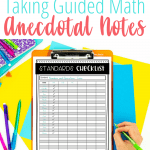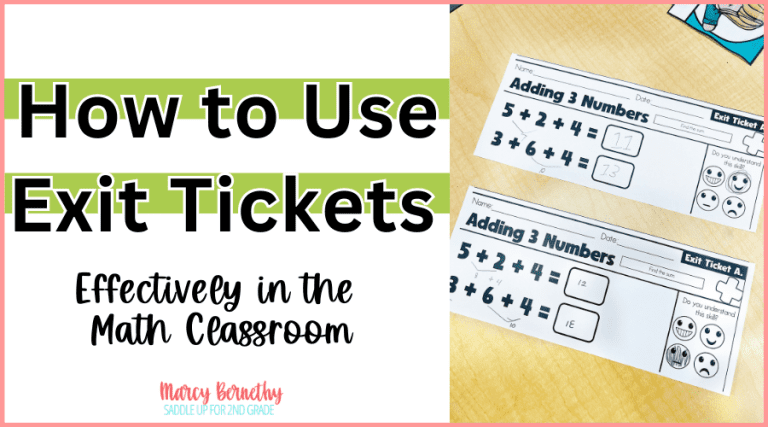

Join me for a FREE, Guided Math workshop to discover how to easily incorporate Guided Math into your current schedule!
One of the key components of a guided math small group lesson is taking anecdotal notes. Yet at the same time, most teachers out there don’t take them. Why is this you might ask?
I believe it is from a lack of training for teachers on what exactly anecdotal notes are and how to use them effectively in your instruction.
I can’t tell you how many times I’ve sat down to plan out my own small group lessons, only to not remember anything I had done with my students at the small group table in the previous days or weeks. I call this a “teacher brain block.”
When I didn’t take notes on how a student performed, I would struggle to plan my small group lessons based on what student needs should be met. If you can relate, read on to learn why you should be taking anecdotal notes during guided math and how to do so effectively.
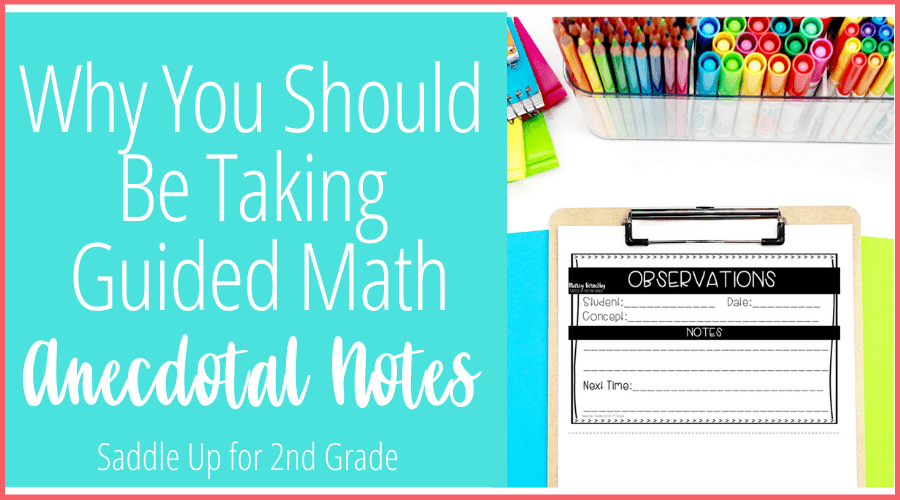
The word “anecdotal” may seem really fancy and a bit intimidating, but I promise, it’s actually super simple!
Anecdotal notes are short, concise notes that a teacher takes while observing and working with students. These notes document the strengths and weaknesses a student shows with a given concept during a small group guided math lesson.
There are so many benefits of taking guided math anecdotal notes for you and your students.
By taking anecdotal notes during your small group lessons, you’ll have a better understanding as the teacher as to what each of your students needs out of the lesson.
This will help you reflect on student learning for a specific lesson and concept. By reflecting on your notes and each student’s progress, you’ll be able to plan future lessons and activities that align with the needs of your students.
When taking guided math anecdotal notes, there are a few key elements to include to set your notes up for success.
You want to make sure to include:
Keep these sections very short and sweet. They do not need to be lengthy sentences. You can even fill out a good portion of these notes before beginning your lesson. This will allow you to focus on observing your students and taking lesson-specific notes during your instructional time.
As you are teaching and observing your students, expand on your anecdotal notes by jotting down items such as:
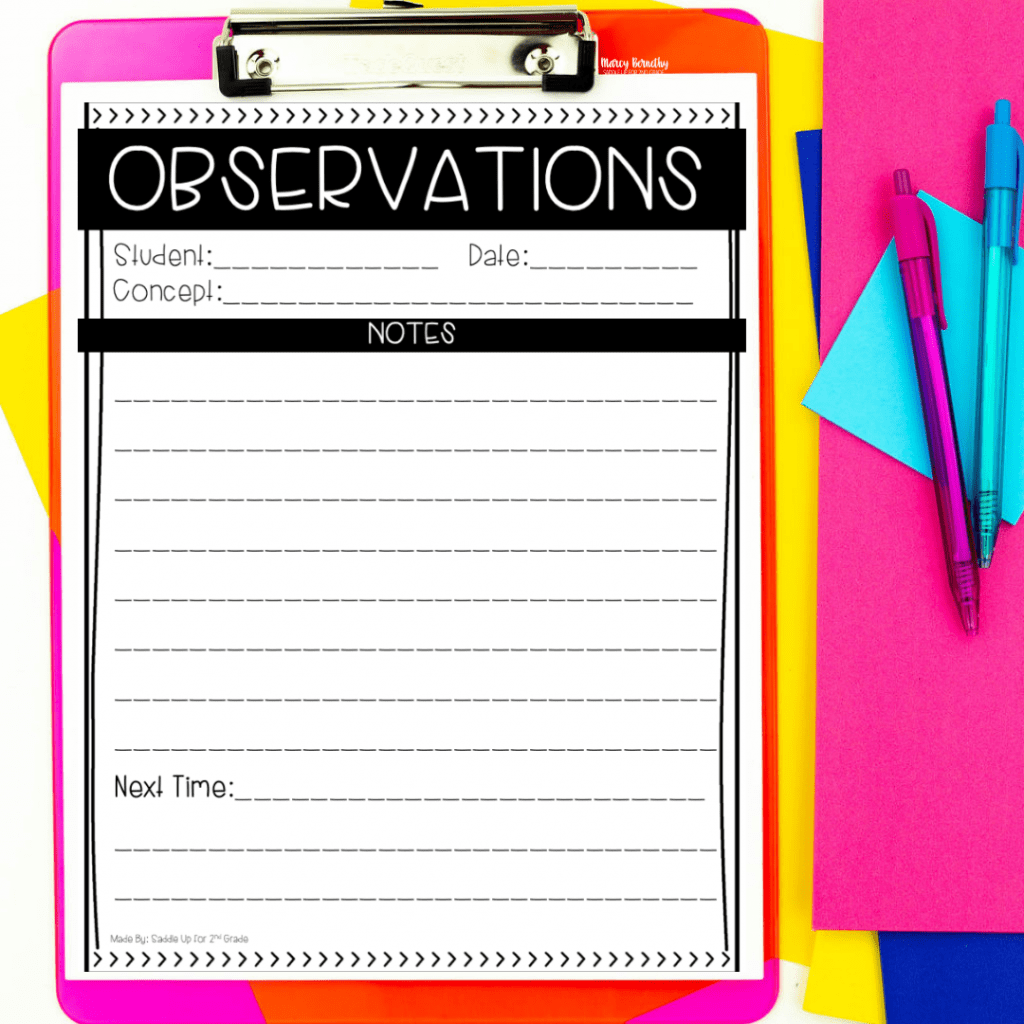
There is no one magical time that you should take anecdotal notes during guided math. Anecdotal notes can be taken during independent practice or small group instruction.
If you have a math station-only time, perhaps on a Friday afternoon, where all students are working in math stations, you can walk around the room and take anecdotal notes as you observe students working with concepts independently.
If you have a teacher’s aid, you can have them take anecdotal notes of their own during instructional time and share them with you so you can see what they observe.
It’s important to know that you do not have to take notes on every student every day. It’s a good practice to try to take notes on each student once a week. If they are an emerging learner, you may want to take notes 2-3 times a week, especially if you are planning for intervention.
Organization is a very personal thing, so be sure to find what works best for you and your organizational style! I like to organize my notes inside of my Guided Math Binder.
I have a section in my binder that holds blank pieces of paper so that I always have some on hand to jot notes down on.
After I’ve taken notes, I place the piece of paper in the student groups section of my binder. This allows me to go back and revisit the notes when planning for future instruction.
If you’d like to see exactly how I set up and use my Guided Math Binder, click here to read my blog post all about that!
To get started taking anecdotal notes, all you need are a few simple items:
If you’re ready to dive into taking anecdotal notes during your guided math instruction, I have a few templates that can make this super easy and organized for you.
Included in my Guided Math Binder are half and full page options for taking anecdotal notes. There are also a variety of data templates and checklists to keep track of your students’ progress, rate their mastery of concepts, gather notes for parent teacher conferences, and more!
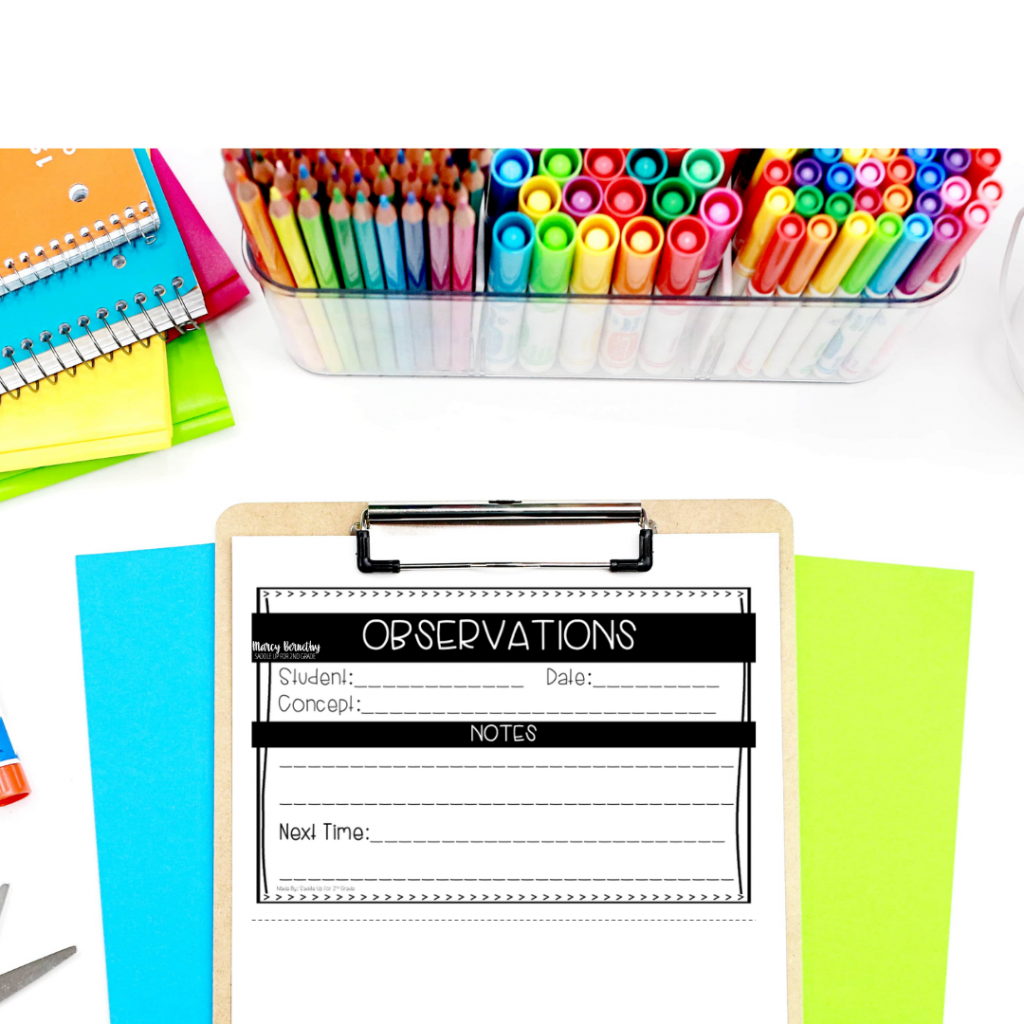
For a deep dive into why you should be using anecdotal notes, be sure to check out my YouTube video. For more teacher tips, activity ideas, and more, be sure to hit subscribe while you’re there!
Be sure to pin this post so you can come back to it later!
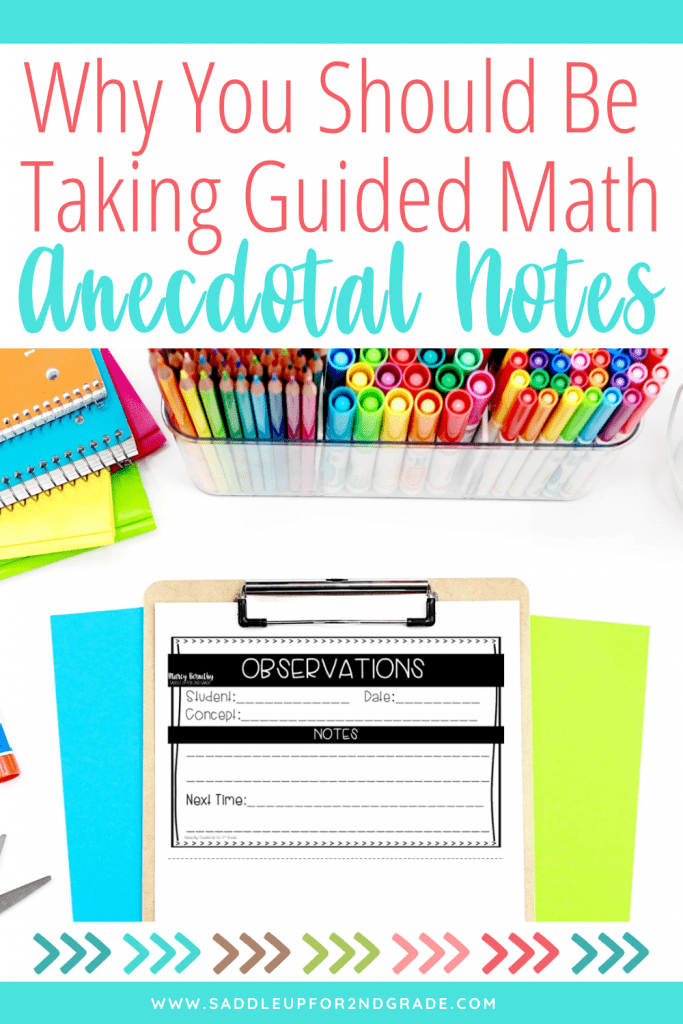
Math should be fun, not stressful. Ditch the timed math fact tests and replace them with math games that will help your students learn and retain information more effectively.
© Saddle Up for 2nd Grade • Website by KristenDoyle.co

